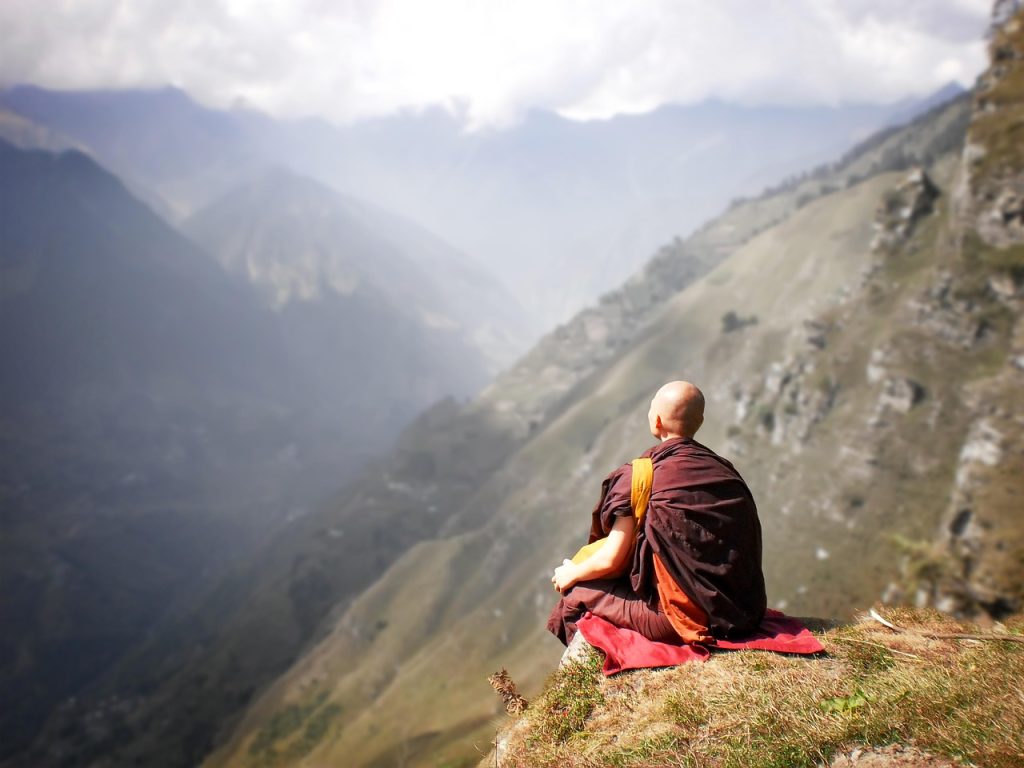While you struggle with sleep apps and expensive mattresses, monks figured out perfect sleep 1,500 years ago using simple practices that work better than any modern technology.
Note: These are historical practices and general wellness insights. If you have chronic sleep disorders or health conditions, consult with a healthcare provider for appropriate treatment.
You spend fortunes on sleep products and still toss and turn. Meanwhile, monks achieved perfect sleep through techniques that modern science is just catching up to.
They Treated Sleep as Sacred
Monks didn’t see sleep as dead time. They turned it into spiritual practice—a chance for deeper connection and insight, not just physical rest.
This mindset shift alone changes everything. When you approach sleep with reverence instead of frustration, your whole relationship with rest transforms.
The Midnight Prayer Hack
Christian monks woke at 2 AM for prayer, accidentally creating the perfect biphasic sleep pattern that modern science now recognizes as optimal.
They’d sleep, wake for an hour of quiet contemplation, then sleep again. This aligned perfectly with natural hormone cycles and left them more rested than eight straight hours.
If you wake up naturally around 2-3 AM, don’t force yourself back to sleep immediately. Use that time for quiet reflection—it might be your body’s natural rhythm.
Evening Rituals That Actually Work
Monks created bedtime routines that prepared both mind and body for rest. Evening prayers, contemplative reading, and clearing mental burdens through reflection.
You can adapt this: wind down with gratitude practice, light reading, or journaling about your day. The key is consistent ritual that signals to your brain it’s time to rest.
They also practiced “examination of conscience”—processing the day’s emotions and stresses instead of carrying them to bed. Your modern version might be writing down tomorrow’s tasks or talking through concerns with someone.
Simple Sleep Environments
Monastery cells were deliberately minimal. No clutter, natural materials, proper ventilation, and complete silence during sleep hours.
Your bedroom should be a sleep sanctuary, not an entertainment center. Remove screens, keep it cool and dark, and eliminate anything that doesn’t serve rest.
They Worked With Dreams
Monks didn’t just ignore their dreams—they saw them as spiritual guidance. They recorded dreams, looked for patterns, and used them for insight.
You don’t need to get mystical about it, but paying attention to your dreams can reveal stress patterns, creative solutions, or emotional processing you might miss while awake.
Eating for Sleep
Monastic fasting naturally optimized sleep. No heavy meals before bed, simple natural foods, and meal timing that aligned with their sleep schedule.
Stop eating 3-4 hours before bed. Your digestion interferes with sleep quality more than you realize. When you do eat, keep it simple and natural.
Community Sleep Support
Monks had shared sleep schedules and mutual accountability. No one was scrolling social media at midnight because everyone was committed to the same rest rhythm.
Create your own sleep community. Talk to family or roommates about respecting quiet hours. Find friends who prioritize sleep. Social pressure works both ways.
Seasonal Adjustments
Monasteries naturally adjusted sleep with the seasons—longer rest in winter, shorter in summer. They worked with their biology instead of forcing year-round consistency.
Don’t feel guilty about needing more sleep in winter or feeling energized with less sleep during long summer days. Your body has seasonal rhythms.
Modern Science Backs Them Up
Research now validates most monastic sleep practices: biphasic sleep patterns, evening meditation, environmental simplicity, meal timing, and seasonal adjustments all improve sleep quality.
They figured out optimal sleep through centuries of practice. Modern sleep science is just catching up to what they already knew.
What You Can Do Tonight
Create an evening ritual that calms your mind. Simplify your sleep environment. Stop eating 3-4 hours before bed. If you wake naturally at night, spend a few minutes in quiet reflection before going back to sleep.
Most importantly, change how you think about sleep. It’s not time stolen from productivity—it’s when your mind and body restore themselves for everything that matters.
What’s your biggest sleep struggle? Have you noticed how your evening routine affects your sleep quality?
The monks understood that sleep is too important to waste on unconscious rest when it could be used for restoration and insight. Maybe it’s time you started sleeping like a monk.
